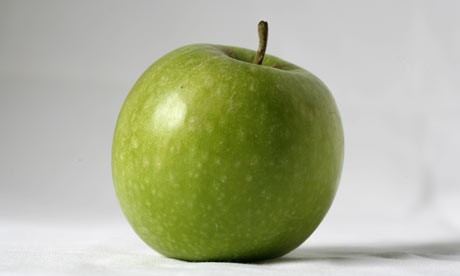
It seems that I may suffer from orthorexia, othorexia nervosa to be exact. I never knew until I saw a report about the condition the other day, and according to Dr Peter Rowan of the Cygnet Hospital Ealing Eating Disorders Unit there's a lot of it about. The term was coined by Dr Steven Bratman in the US, and the vital signs of it are:
• Are you constantly worried about the quality of the food you
eat?
• Do you try to eat only pure, natural foods and exclude everything else?
• Do your healthy eating habits make you feel good about yourself, virtuous even?
• Do you feel incredibly guilty if you eat something you consider unhealthy?
• Are you critical about what other people eat?
• Is your obsession with eating healthy food leading you to lose lots of weight?
• Does eating only healthy food give you a sense of control about your life?
I'd have to plead guilty to most of those notionally, except for feeling incredibly guilty when I eat something that indulges my grosser appetites, and the weight loss provision. Try as I might, I don't seem to be able to achieve that. It's probably just as well; the weight loss associated with obsessive orthorexia nervosa can be dangerous. My shape is the outward and visible sign of my inward, invisible and thankfully mild ailment.
I can see where Drs Bratman and Rowan are coming from, as they say, although my idea of healthy eating might not be theirs. It's true that I do worry, almost obsessively, about the quality of what I eat; I try make sure that my butter comes from a farm I know, that the cream is double, unpasteurised and preferably from a Jersey or Guernsey cow, and I always have three types of salt in the cupboard. I like to know the pedigree of the beef, lamb, pork and chicken that I eat, and I like my animal protein to be seamed with fat. And to be truthful, I am more concerned about the intensity of flavour in my fruit and veg than I am about chemical content. As far as I'm concerned, the healthiest part of healthy eating derives from the pleasure it gives me, and pleasure derives from flavour, texture and variety.
The only really sensible observation I've ever heard about diet came from a specialist I consulted some years ago. Think of yourself as a unique chemical cocktail, he said, and when you eat and drink you're adding more chemicals to the original ones, and we all react in a different way. The body of knowledge we have on the way what we eat affects us is so small in scientific terms that we can draw little other than the broadest and most useless conclusions. Eat less, eat better and eat a variety of foods was his advice, and I've tried to abide by it ever since. I just have a bit of a problem with the less part.
The trouble is that we've come to depend so completely on quick and easy nostrums as the solution to our various perceived ills that salads, ceviche and sushi have become identified as the cure-all 'healthy' food de nos jours, along with pulses, muesli and olive oil and other foods of that ilk. We have succumbed to a narrow view of what constitutes healthy and ethical food, where the term 'organic' has simply become a marketing tool and artisanal is synonymous with desirable. We have substituted labels for knowledge. We have delegated decisions controlling the nature of our food to other authorities, be they the supermarkets, the Food Standards Authority or one of the thousands of self-appointed experts on diet and health.
So great is the power that healthy foods have over the consuming psyche that they fulfil a paradigm of contemporary life - they have become brands in their own right. Such foods sit easily in a culture defined by what trainers you wear, what jeans you're encased in, what TV shows you watch, what handbag you carry, what aftershave you douse yourself in. Sheep-like we have submitted to the tyranny of the brand, and food is one of the instruments of tyranny. It leads to bizarre moral dilemmas, the acme of which is the absurdity at Nobu where the endangered bluefin tuna appears on the menu, because health and brand obsessed customers expect it, along with the disclaimer advising you not to eat it. How silly can you get.
I blame it on that orthorexia nervosa, myself. Mind you, I'm not so sure that it's quite as new as doctors Rowan and Bateman might believe. A few thousand years ago Epicurus came up with a far more appealing idea – a philosophy of eating small amounts of the very finest foods, simple or elaborate, that money can buy. That's what I call being obsessed by food. On the whole, I'd prefer to be an Epicurean than an orthorexic. Wouldn't you?

